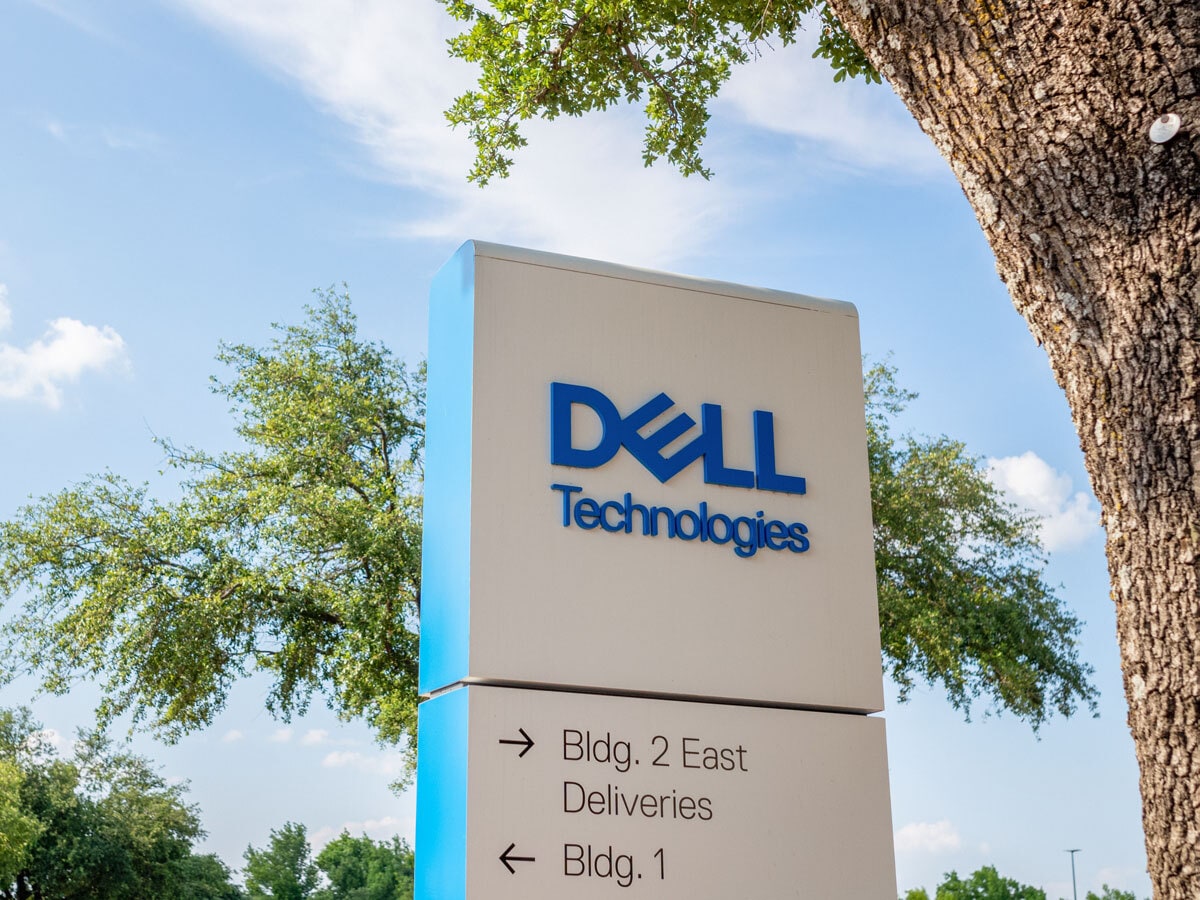Based in Texas, Dell [DELL] has been one of the most recognizable names in computing since the dot-com boom. While the company is best known for its personal computer (PC), it has recently pivoted towards artificial intelligence (AI). While this move looks like good news for its top line, it could be negatively impacting Dell’s profit margins.
DELL Stock’s PowerEdge
While PCs remain the bedrock of Dell’s business, it has spent much of this year leveraging its expertise in computing hardware to get in on the stock market’s latest act: AI.
In May this year, Dell unveiled a new generation of AI products, including AI-enabled PCs and a new server powered by Nvidia’s [NVDA] latest Blackwell chips.
“We’ve just started to touch the AI opportunities ahead of us,” said Vice Chairman and Chief Operating Officer Jeff Clarke at the end of the company’s fiscal year 2024.
The chance to expand into a new market is good news for Dell, because global PC demand has lagged in recent years. From a peak of $230.01bn in 2021, the global combined market for desktop PCs, laptops and tablets fell to $219.24bn in 2024, and is unlikely to return to its former size until 2026, according to Statista Market Insights.
Gartner reported in July that the global PC market grew 1.9% year-over-year in Q2 2024, marking three consecutive quarters of year-on-year growth. Worryingly for Dell, though, its shipment numbers fell 2.4% during the same period — making it the only one of the world’s six largest producers to see falling PC shipments during this period.
Dell’s Share Price
That has not unduly concerned investors, who seem to view AI hardware as the major long-term growth segment for Dell.
Dell’s share price has gained 51.19% year-to-date and 64.44% over the past 12 months.
It has experienced peaks and troughs, largely corresponding to its earnings announcements. For example, an earnings beat in Q4 2024 sent Dell’s stock up 31.62% on March 1, but disappointing AI server profit margins saw Dell’s share price fall 17.86% on May 31 following Q1 2025 results.
Dell’s Competitors and Fundamentals
Two of Dell’s closest competitors, particularly in the AI server market, are Hewlett Packard Enterprise [HPE] and Super Micro Computer [SMCI].
| DELL | HPE | SMCI | |
| Market Cap | $80.28bn | $22.27bn | $26.77bn |
| P/S Ratio | 0.91 | 0.78 | 1.84 |
| Estimated Sales Growth (Current Fiscal Year) | 10.40% | 2.80% | 89.20% |
| Estimated Sales Growth (Next Fiscal Year) | 7.50% | 7.00% | 18.20% |
Source: Yahoo Finance
Dell’s market cap is significantly higher than those of its two competitors. Despite being the largest incumbent, it is expected to grow revenue significantly faster than Hewlett Packard this year, and has a comparable P/S ratio.
SMCI is expected to be the fastest-growing stock in terms of revenue, and its current valuation compared to its trailing sales has expectations of future growth baked in. It is more than twice as expensive, per dollar of sales, than either DELL or HPE.
DELL Stock: The Investment Case
The Bull Case for Dell
These valuations might not be the only reason for investors to opt for Dell over Super Micro.
Dell was highlighted in a recent report from Hindenburg announcing that it was short-selling Super Micro. As well as alleging dubious accounting and business practices, Hindenburg suggested that Dell is a preferred supplier for many of Super Micro’s key customers.
For example, it cites Nvidia CEO Jensen Huang, who in May said that “nobody is better at building end-to-end systems of very large scale for the enterprise than Dell”.
This perception is driving increased demand for its AI servers. Dell’s servers and networking revenue increased 80% year-over-year in Q2 of its 2025 fiscal year.
“Our AI momentum accelerated in Q2,” said Clarke in the quarterly press release. “AI-optimized server demand was $3.2bn, up 23% sequentially, and $5.8bn year-to-date. Backlog was $3.8bn, and our pipeline has grown to several multiples of our backlog.”
Morningstar analyst Eric Compton issued a note following these earnings acknowledging that Q2 AI server sales had “dramatically” exceeded the firm’s expectations. “We have lifted our revenue and profitability estimates to reflect our more optimistic outlook given current results,” wrote Compton. Morningstar’s fair value estimate increased from $92 to $112.
The Bear Case for Dell
Weak PC demand is putting pressure on Dell’s profitability.
According to Bloomberg, AI servers are less profitable than other arms of Dell’s business, and consumer PC sales have fallen 22% year-over-year. On Dell’s Q2 earnings call, CFO Yvonne McGill attributed a 230-basis-point fall in gross margin to “an increase in our AI optimized server mix”, as well as price pressures.
These tight margins are squeezing the wider business. The company acknowledged in a 10-Q filing that it would continue to reduce its overall headcount this year as part of a commitment to “disciplined cost management”.
Conclusion
Dell could be well-positioned to capture a significant element of the AI market’s tailwinds, but this involves expanding a relatively low-margin part of its business. Investors should therefore consider the risks involved and, as always, conduct thorough independent research before making an investment decision.
Disclaimer Past performance is not a reliable indicator of future results.
CMC Markets is an execution-only service provider. The material (whether or not it states any opinions) is for general information purposes only, and does not take into account your personal circumstances or objectives. Nothing in this material is (or should be considered to be) financial, investment or other advice on which reliance should be placed. No opinion given in the material constitutes a recommendation by CMC Markets or the author that any particular investment, security, transaction or investment strategy is suitable for any specific person.
The material has not been prepared in accordance with legal requirements designed to promote the independence of investment research. Although we are not specifically prevented from dealing before providing this material, we do not seek to take advantage of the material prior to its dissemination.
CMC Markets does not endorse or offer opinion on the trading strategies used by the author. Their trading strategies do not guarantee any return and CMC Markets shall not be held responsible for any loss that you may incur, either directly or indirectly, arising from any investment based on any information contained herein.
*Tax treatment depends on individual circumstances and can change or may differ in a jurisdiction other than the UK.
Continue reading for FREE
- Includes free newsletter updates, unsubscribe anytime. Privacy policy





